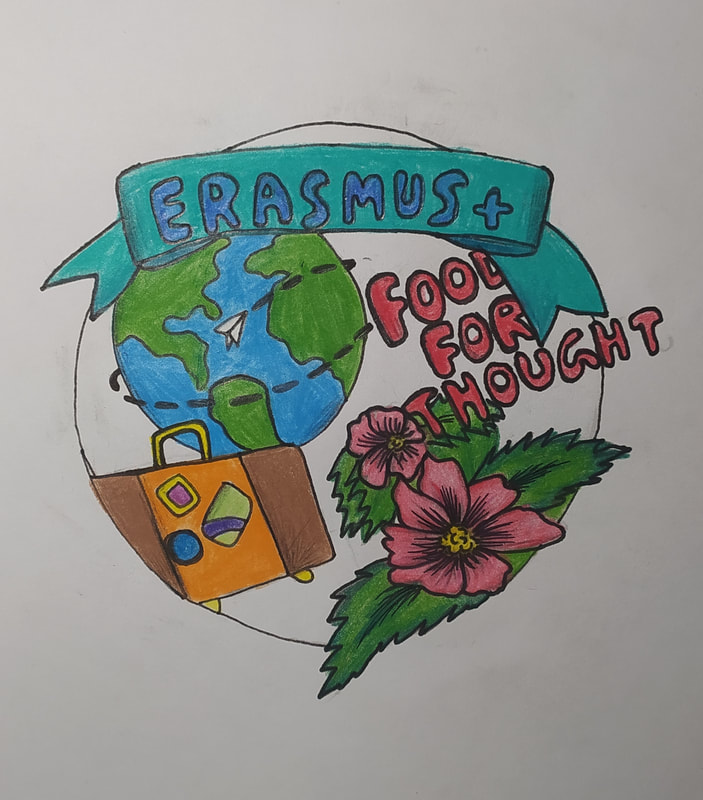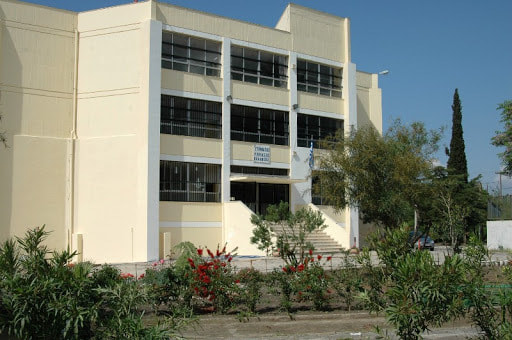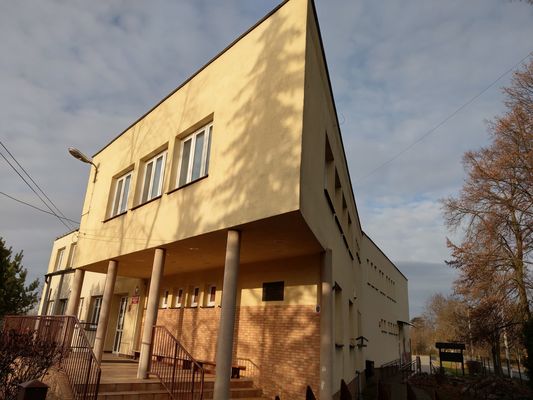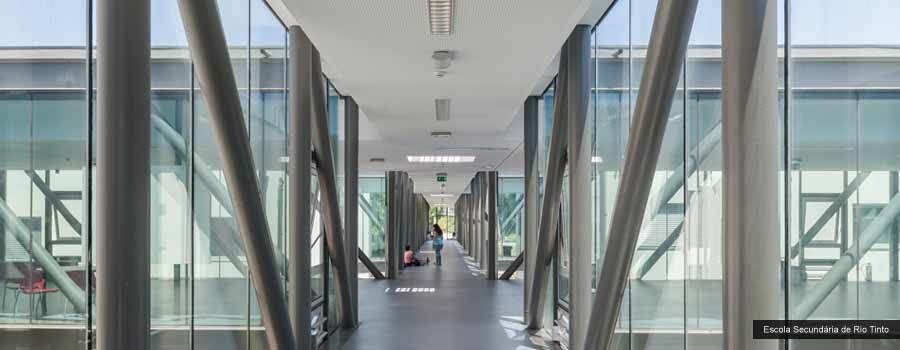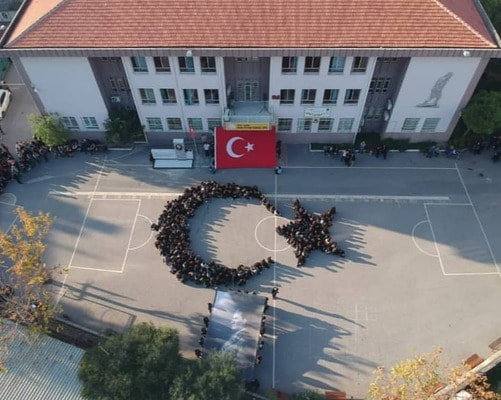|
Our project is called Food for Thought and is supported by teachers and students from four countries - Greece, Turkey, Portugal, and Poland. The institutions involved constitute a mixture of experienced participants and newcomers. The project explores the connection that exists between food and a number of primary aspects of human activity and culture. We chose this subject because it offers a variety of perspectives and constitutes a concept that is easily comprehensible by the age group of our students (12-15 years old). We focus our approach on four areas - art/literature, folklore/tradition, health/well-being, and the environment. This journey reveals the importance of food as a cultural element uniting Europeans not only in the course of their history but in their common future as well. It also tries to sensitize our adolescent students to the benefits of a healthy diet and its contribution towards well-being and mental balance. Finally, it introduces the subject of producing and managing food in a world of overpopulation, pollution, and steadily decreasing natural sources - only by keeping the biodiversity of our areas blooming we have a chance to achieve the sustainability of the ecosystem and the food production.
Our junior high school is in Kalamata, a seaside town of approximately 60,000 inhabitants in south-west Greece. Kalamata has a typical Mediterranean climate with mild rainy winters and hot dry summers. The surrounding area produces a variety of agricultural products, among which the most famous include raisins, figs, olives and olive oil. In particular, the local olive oil is of excellent quality and is characterized by a rich and distinct flavor. During the last decades, the town and the area around it have developed into a popular tourist destination. This tendency was further enhanced by the construction of a modern highway which reduced the time needed to reach Athens to 2.5 hours. In addition, there is an international airport that services charter flights from several European countries. The attractions of the city include the long crystal-clear beach in the south and the old part with the pedestrianized picturesque streets and the medieval Frankish castle in the north. Within a one-hour drive from the center, visitors should not miss the importance of the archaeological site of Ancient Messini, the wilderness of the Polilimnio waterfalls and the Mediterranean beauty of seaside villages like Kardamyli, Stoupa, Pylos, Methoni and Koroni.
There are currently 26 teachers and 180 students aged 12-15 at our school. Most of the students live in the surrounding residential areas, whereas 25% of them commute from nearby villages. In our school, there is a desire to promote participation in European projects, to strengthen the intercultural skills of the students and to show them new perspectives and insights. Both the school headmaster and the teachers have many years of professional experience and are sufficiently trained in pedagogical and didactic subjects. A lot of them have participated in Comenius or Erasmus+ programs and have been carrying out various school projects every year. Our headmaster has run a robotics laboratory for three years, where students from the city and the nearby villages have attended relevant courses. Furthermore, the German teacher has overseen a peer-mediation program for six years, during which she has trained numerous other teachers. The Greek teachers have been in charge of a reading club and have also trained students to take part in debate competitions being organized by the local university of humanities. Szkoła Podstawowa im. Kawalerów Orderu Uśmiechu w Czersku is located in a small village called Czersk, around 30 kilometers from the capital city of Poland, Warsaw. It has got 200 students aged 6-15 and 25 teachers. The teachers use ICT tools as well as new methodologies such as flipped and cooperative learning during the process of teaching effectively. The teachers and the educational community of Primary School in Czersk are very active in organizing all kinds of school events. Our annual celebration is held in November and is called the School Patron's Day. By taking part in various international projects, we help students to gain experience from other nations, share the cultural aspects as well as their own ideas and experience. We have completed a lot of projects and there are several eTwinning projects running for the time being (The Traditional Postcard with a Modern Twist, the Traveling Teddy project, Hands of the World - You can See what you Say which involves the use of Makaton, the sign language). All of these projects have been realized in collaboration with countries from all over the world. Apart from eTwinning, our school has taken part in an innovative project called School of Possibilities in Czersk, where extra after school lessons were taught in different fields. The annual project called “The Week of Global Education” is usually held in November. During this week, students get to know the culture, customs, and cuisine of European countries and they make presentations about them as well as prepare typical dishes from these countries. The group of participating teachers is excited about this new challenge of being part of an Erasmus+ project. Our staff is well trained, educated and highly motivated. All the teachers are ready for new experiences and cooperation. We are glad to be involved in this project as we want to make our pupils understand social, linguistic and cultural diversity and have a positive attitude towards other European countries. We want our students to find out more about European cultures, to improve their skills of foreign languages and become aware of the various connections that food has with a lot of aspects of humanity - art, literature, folklore, health, and environment.
AERT3 School Cluster is an education state institution supervised and financed by the Portuguese government. It comprises nursery schools, elementary schools, a preparatory school and a secondary school , totaling 3300 students and 254 teachers. It is well aware of the community, as well as its needs. The quality of its service allows the balanced development of children and young people, enabling them to acquire useful qualifications in order to pursue higher education, or to be better prepared for the world of work. Its organization bears in mind not only the individual’s educational and professional success but also the exercise of full citizenship, taking into account the diversity of the curricula on offer, as well as the cultural, social and economic background of its surrounding environment.
The aim of our school is to promote diversity and lifelong learning. The school community facilitates social and civil activities. To enhance learning and achievement, school develops a variety of skills through systematic work and support by additional teaching in school and at home. Children, adolescents and youth should be provided with knowledge, attitudes and values that will help them to make the right choices and take appropriate decisions to their physical, social and mental well-being. The lack of information hinders decision-making and school is undeniably one of the key drivers of this process. Selma Yiğitalp Anatolian High School is situated in Konak, in the district of İzmir. It started education in 1984 on the land which was donated by Mrs. Selma Yiğitalp who gave her name to the school. Our school is a high school which gives education to girls and boys together with 25 classrooms. There are 53 teachers, two school counselors, two vice-principals and a principal on duty in our school. Our school’s vision is to be the principled, dynamic and contemporary address of education. Our mission is to bring up individuals who are self-fulling, who can think scientifically and who are decked out with culture. As our school is in Turkey’s third metropolis, it has a cosmopolitan structure. Our students come from different socioeconomic families. Although we have a positive atmosphere in our school in general, familial problems, not using time efficiently, social media addiction are some of the problems which we face from time to time. As being a candidate country to the European Community our great need and our institution’s primary aim is to catch the quality of highest standards in education. Being aware that the students’ success don’t rely on coincidences, and knowing that the institution’s success is parallel with it’s educational quality, we aim to transfer the good practices from partner schools and we will make a difference in our institution. The biggest criteria that bring us together is the high motivation we have and the desire to be beneficial for our students. |
|
